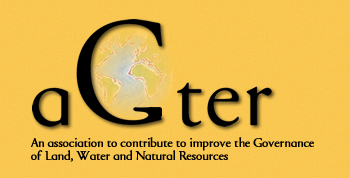|
|
||||||||||||||
|
|
Since Laurent Wauquiez became president of the Auvergne Rhône-Alpes region by end of 2015, the A45 highway project is back on the political agenda as a priority. This project aims at doubling the free existing highway between Lyon and St Etienne by connecting Brignais (South suburb of Lyon) and La Fouillouse (North suburb of St Etienne) and would destroy at least 500 ha (hectares) of agricultural land. After many years of investigation, this project, initially launched in 1993, is resurfacing, aiming at delivering the campaign pledges of François Hollande in presidential election and of Laurent Wauquiez in regional election. In fact what they are confirming here is primarily their allegiance to Vinci, builder and forthcoming concessionaire of the highway. Indeed the cost of this operation is estimated at 1.5 billion euro of which 845 millions of public funds, corresponding to the value of the “balancing subsidy” (to be funded by the state and the territorial communities) as requested by Vinci in order to compensate the cost of the project that is considered non profitable. At the very moment when drastic budget cuts are imposed to a large number of the associations in Auvergne Rhône-Alpes Region, 845 millions of public funds would be granted to a private company in order to support it in the construction of a tolled motorway. One of the main arguments used by the project’s advocates is that the motorway would “open up” Saint Etienne and boost its economic development. However, in most cases, when a highway links two cities, the expected “development” always benefits to the bigger one. The A45 motorway, by easing the daily pendular migration from Saint Etienne to Lyon shall increase dependence of the former to the later. But most of all, how could we speak of “economic development” if hundreds of direct or indirect agricultural jobs will be destroyed by this highway. One again the farming profession is being trampled; as if its economic activity were of no value. This highway would actually decimate a region with dynamic agricultural activity, mainly composed of family farms, and having a huge potential for developing short distribution channels in a large consumption basin. Actually numerous direct sales channels for agricultural products already exist in this this area. In particular, in this area, half way between Lyon and Saint Etienne, in the village of Saint-Andéol-le-Château, the very first French collective point of sale, Uniferme, was set up as early as 1978. At this date seven farmers and friends decided to pool their productions and sell them directly to consumers in a little shed settled on the roadside. Today, the Uniferme shop is self-managed and gathers 18 farms (that generate a total of 40 employments). Approximately ten farms linked to Uniferme would be impacted by the highway project and would not be able to carry on their activity. It is dramatic that decision makers could ignore such an experience as the one of Uniferme that is demonstrating since almost forty years that it is possible to perform economically and environmentally viable farming at human scale. Besides Uniferme farmers many other farmers of this territory will see negative impact on their activity due to the highway passage. The structural violence that is exercised all over the world against peasants - that are forced to cease to exist, due to imposed policies that are hostile to them- is visible once again in this useless, expensive and destructive project. In the wake of the COP21, the vacuity of our governors’ commitments is brought to light again since those are agreeing for a highway project to destroy the remaining of land and biodiversity between Lyon and Saint Etienne, to attack local farming activity and favour road traffic and related greenhouse gas emissions. The good news is that resistance is being organized to face inconsistency and irresponsibility. Website of Peasant Confederation of Rhône area : http://rhone.confederationpaysanne.fr/mobilisations.php?id=5047 Website of « Sauvegarde des Coteaux du Lyonnais » (SCL) association: Website of « Sauvegarde des Coteaux du Jarez » (SCJ) association: |
AGTER. Addres: 45 bis, avenue de la Belle Gabrielle, 94736 NOGENT SUR MARNE CEDEX, FRANCE
Telephone: +33(0)1 43 94 72 59 / +33(0)1 43 94 72 96
E-mail: agter@agter.org




